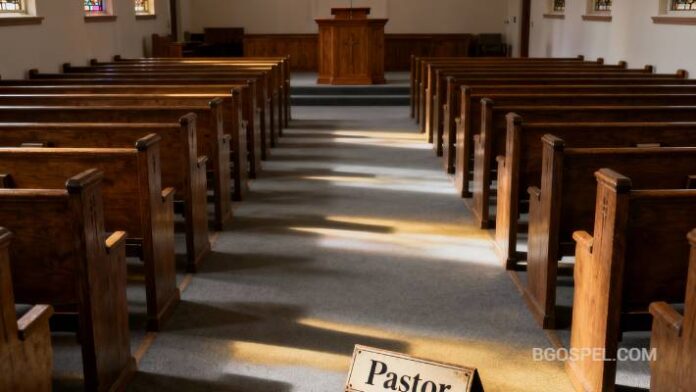A worrying phenomenon: the premature and illegitimate use of the title of pastor
Growing disorder is observed in many evangelical communities, particularly in Haiti and the Haitian diaspora, where young believers without official responsibility in a local church are giving themselves or prematurely receiving the title of pastor. This practice, contrary to biblical teachings on pastoral ministry, weakens the credibility of ecclesial institutions and sows confusion among the faithful.
Theological schools bear a significant part of the responsibility for this carnal disorder. In Haiti in particular, some establishments call their students “pastor” from the first year of theological studies, creating a culture of premature appropriation of the title. Testimonies report that several students, during and after their training, categorically refuse to be called by their first name without the title “pastor”, considering any omission as a lack of respect.
This phenomenon extends to gospel artists and young theologians who, having the capacity and opportunity to preach or lead worship in churches, take on the pastoral title without exercising direct responsibility in a local community.
Even more disturbing, some pastors ordain young “pastors” without giving them any responsibility in their own church and without them having a community to support. This practice empties pastoral ministry of its biblical meaning and transforms ordination into a simple honorary formality.
This situation is gradually destroying confidence in ecclesial institutions, at a time when Christian communities are already strongly impacted by scandals of all kinds. For a large majority, the Church is now seen as a lucrative business rather than an authentic spiritual community. The proliferation of self-proclaimed false pastors reinforces this negative perception and creates widespread distrust.
Faced with this institutional and theological disorder, it becomes imperative to clarify what pastoral ministry really is according to Scripture and Protestant ecclesiastical traditions. The title of pastor cannot be dissociated from the effective exercise of a pastoral charge within a local community.
Pastor without church: legitimacy of the title and distinction with the theologian
The pastorate, a function and not a simple title
The pastor fundamentally exercises a function within an ecclesial community, and not a simple honorary title. In the Protestant tradition, one generally cannot be a pastor without a local church.
Pastoral ministry involves leading religious services, administering the sacraments, preaching and accompanying the faithful. This function is intrinsically linked to a specific community.
The Bible presents ministries as given by God for the building of a community, according to 1 Corinthians 12 and Ephesians 4. A pastor without a local church would have no community to serve.
Vocation versus profession
The pastorate is first and foremost a vocation, not a profession in the professional sense of the term. The pastor responds to a call from God which must be recognized by the Church.
However, the pastorate has professional aspects: rigorous theological training (a master’s degree in theology is often added, i.e. 5 years of study), official recognition by ordination, and salary paid by the church. Pastors go through a probationary period called “proposanat” before being fully recognized.
The term “pastor” can be used as a title of civility to address someone who exercises this function. However, it is not an honorary title that one can wear without actually exercising the ministry.
Theologian or pastor: two distinct roles
A pastor should properly be a theologian, but a theologian is not necessarily a pastor. The theologian studies, analyzes and teaches Christian doctrine in an academic manner.
According to Ephesians 4, Paul links “shepherd” and “master,” suggesting that every pastor must also be a teacher and therefore a theologian. Pastors are the primary theologians of their local church.
The training requires a professional Master’s degree in theology (5 years of study) including theoretical studies, practical internship and dissertation. A theologian can practice in university teaching without pastoral responsibilities.
The abusive use of the title by artists
Some gospel artists are legitimate pastors and singers: Moïse Mbiye leads the Cité Bethel church in the DRC, Delly Benson leads the Holysongs church, Hezekiah Walker is pastor of the Love Fellowship Tabernacle in New York, Tye Tribbett is pastor and co-founder of the Live Church Orlando, and many others. These people combine both functions.
A singer cannot legitimately bear the title without a recognized pastoral function in a church. If an artist calls himself a “pastor” without ecclesiastical responsibility, theological training or recognition, this is an abusive use.
The title designates a specific function of teaching, spiritual accompaniment and direction within a community. Use without this function is therefore misleading.
The recent case of Matthieu Koumarianos, pastor of My Gospel Church Paris dismissed in December 2024 for “serious moral misconduct” following accusations of manipulation, control and multiple sexual abuse over ten years, illustrates the possible abuses. The church was dissolved by resignation of all its members who wished to dissociate themselves from these serious actions.
The problem of self-proclamation
Self-proclamation as pastor is contrary to biblical and ecclesiological practices. In traditional Protestant churches, the process involves several steps to avoid this trap.
The pastoral vocation must be confirmed by a Commission of Ministries, a church council and the church community. This process of collective recognition guarantees legitimacy.
The phenomenon of self-proclaimed “false pastors” is particularly worrying in certain evangelical churches where controls are less rigorous. These individuals often exploit the vulnerability of worshipers for financial gain.
The example of Charles Bameko, who proclaimed himself a “pastor” without training or recognition, illustrates the abuses: fraud, abuse of trust and manipulation. This case demonstrates the importance of ecclesial validation mechanisms.
In Africa, the phenomenon of false pastors transforms religion into a lucrative business, exploiting the faith of vulnerable populations. This commercialization of the pastoral title destroys the credibility of ecclesial institutions.
Theological schools and the premature granting of the title
In Haiti, many pastors lead churches of 300 to 800 members with minimal biblical training, often leading them to interpret Scripture without solid foundation. Targeted training programs, such as those at the Bible Training Center for Pastors (BTCP), attempt to address this gap by providing structured Bible training over two years.
However, some Haitian theology schools contribute to the disorder by calling their students “pastor” from the first year of study. This practice creates a premature appropriation of the title without effective exercise of pastoral ministry.
Programs vary widely: some offer a bachelor’s degree in theology in just one year for those with an existing degree in the field, while others require several years of rigorous training. This disparity in training standards contributes to confusion about the legitimacy of the title.
The proposal in the pastoral journey
In traditional Protestant churches (United Protestant Church of France, Reformed churches), the proposal is obligatory. This two-year probationary period follows the five years of theological studies.
The proposal allows the future pastor to exercise full responsibility in a parish while being supported and evaluated. The Commission of Ministries then validates the ministry, leading to official ordination-recognition.
In some evangelical churches, processes are less formalized. Training ranges from a one-year certificate to a four-year master’s degree.
It is theoretically possible in these contexts to be recognized as a pastor without a formal nomination, although strongly discouraged. The absence of solid training exposes one to doctrinal errors.
Retention of title after ministry
Retention of the title after leaving active ministry depends on the theological conception of ordination. In Protestantism, pastoral ordination does not have the indelible sacramental character of Catholicism.
For Catholics, ordination confers a permanent spiritual character: a priest remains a priest even if he abandons his ministry, because “the sacrament of Order confers an indelible spiritual character” which configures the priest to Christ. Retired bishops become “emeritus bishops” and retain their sacramental capacity.
In Protestantism, the pastor is essentially a “minister of the holy Gospel”, that is to say a servant who exercises a function. This functional concept implies that the title is linked to the actual exercise.
Some Protestant churches have adopted the title “pastor emeritus” for retirees, recognizing past service. This honorary title clearly distinguishes that it is no longer an active ministry.
Resignation and relinquishment of title
For a pastor who resigns, the pastoral title is usually relinquished. In the United Protestant Church of France, a pastor running for political office must resign.
Once he resigns, he no longer exercises the pastoral function and should no longer use the title commonly. The usage “Mister Pastor” applies to “people exercising the ministry of pastor”.
It would be more accurate to consider oneself a theologian if one no longer exercises an active pastoral function. The person retains their theological training but no longer has a community to serve.
Continued use of the active title “pastor” without pastoral office would be misleading. The comparison with an engineer is not appropriate, because the pastorate is an ecclesial function, not a liberal profession.
The consequences of pastoral disorder
The multiplication of abusive uses of the pastoral title creates a crisis of confidence in ecclesial institutions. Recent scandals, such as that of Matthieu Koumarianos, of whom at least 50 people claim to have been victims of manipulation and control, reinforce the negative perception of the Church.
MIVILUDES (Interministerial Mission for Vigilance and the Fight against Sectarian Abuses) and the National Council of Evangelicals of France (CNEF) are regularly alerted to these abuses. Two complaints were filed in the case of Koumarianos, two of whose victims were minors at the time of the events.
This situation is gradually transforming the Church into an institution perceived as a lucrative business rather than an authentic spiritual community. To restore confidence, a return to the biblical and ecclesiological foundations of pastoral ministry is necessary.



